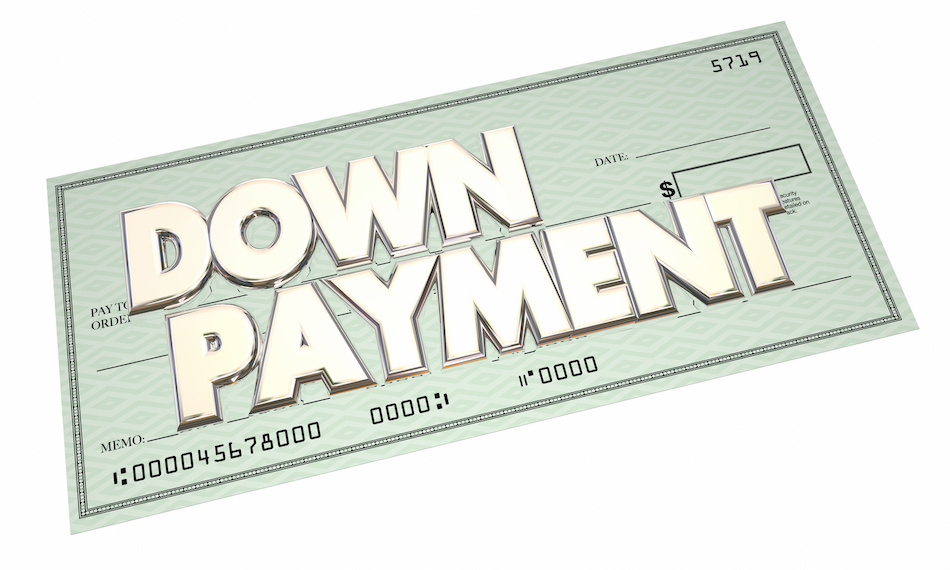Mortgage Down Payments: What You Need to Know
Posted by Dave Kotler on Thursday, March 31st, 2022 at 10:11am.
 One of the more significant expenses you must pay when buying a home is the down payment. You might think you have to pay at least 20 percent, but there are options to pay less. With this information, you can determine what you will be required to pay and how to decide whether to pay the minimum or more.
One of the more significant expenses you must pay when buying a home is the down payment. You might think you have to pay at least 20 percent, but there are options to pay less. With this information, you can determine what you will be required to pay and how to decide whether to pay the minimum or more.
Paying a Standard Down Payment
For decades, lenders have held a standard down payment to be 20 percent or more. Lenders believe that if you share a significant stake in the ownership of the home, you will be more committed to paying the mortgage. If you apply for a mortgage with this down payment, you will pay one-fifth of the home's sale price. As a result, you will hold that much equity in the house.
A standard down payment is ideal for most home purchases because it helps prove to the lender that you are an excellent borrower. The larger the down payment you make, the less you will pay in interest over the life of the loan.
Minimum Down Payments
Estimating a minimum down payment for a mortgage loan depends on the size of the loan itself and your eligibility. People who are self-employed or have a spotty credit history may be expected to pay a higher down payment to negate the risk they present to a lender.
As a general rule, you must pay at least 5 percent down on any mortgage for homes priced up to $500,000. If you buy a home that costs more than that, your lender will require an additional down payment of 10 percent of the difference between the home's sale price and $500,000. For homes priced over $1 million, the minimum down payment is 20 percent.
Common Sources of Down Payment Funds
With some creative thinking and financial planning, homebuyers can find several sources to help with down payment funds. Some sources of down payment funds include:
- From current finances: Create a detailed financial plan and reevaluate spending habits, such as cutting back on dining out, entertainment, and vacations, until after purchasing the home.
- From paying off debts: By paying off all other debts before buying a home, the money used for the monthly payments can be set aside for a down payment.
- From RRSPs: First-time homebuyers can borrow money from a Registered Retirement Savings Plan to use toward their down payment. However, the money borrowed must be repaid within 15 years.
- From the First-Time Home Buyer Incentive: This program offers five to ten percent of the home's purchase price to be put toward the down payment.
Obtaining Funds for a Down Payment
Getting the money for a down payment may be exceptionally difficult, especially if you do not already own a home that has increased in value. Typically, lenders expect you to save up the money for the down payment from your funds since obtaining a loan for the money puts you further into debt. If you are a first-time homebuyer, you may be eligible to participate in the Home Buyers' Plan (HBP).
With the HBP, you can withdraw up to $25,000 from a registered retirement savings plan (RRSP) to cover some of your down payment. However, you must prove that you, your spouse, or your common-law partner is a first-time homebuyer. To withdraw from an RRSP, it must be in your name, with funds in place for at least 90 days. You should also plan to purchase the home by Oct. 1 of the following year after you make the withdrawal.
Paying Mortgage Insurance
If you are wondering why someone who could make a bigger down payment would not choose to pay the least amount they can, you should know about mortgage insurance. Mortgage insurance is a payment you make that protects the lender if you default on the loan. Since borrowers who make the smallest down payments represent the biggest risk, they tend to pay a higher percentage of the home's value in mortgage insurance. Some provinces add sales tax to this fee.
You will pay interest on mortgage insurance if you tack it on to your mortgage. The good news is that if you have accrued 20 percent equity in the home by the time you need to renegotiate the loan, you may be able to avoid paying mortgage insurance in the next term.
Future Factors to Consider
The most significant decision to make is whether it makes more sense to save up more money now or buy a home with a lower down payment. There may be an actual cost to waiting to buy as prices rise in some hotter real estate markets, such as Toronto or Vancouver. Before you buy a property, you should confirm that you are prepared to shoulder all the costs associated with the mortgage and the upkeep of the home. Even if you can qualify for a lower down payment, you must still pay to insure the house, fees for utilities and services, and any home improvements you make while you own it.
Buying a home is expensive, especially the down payment. With these tips, you will be better informed about the benefits of a standard or minimum down payment and which one may best suit your circumstances.
Dave Kotler

